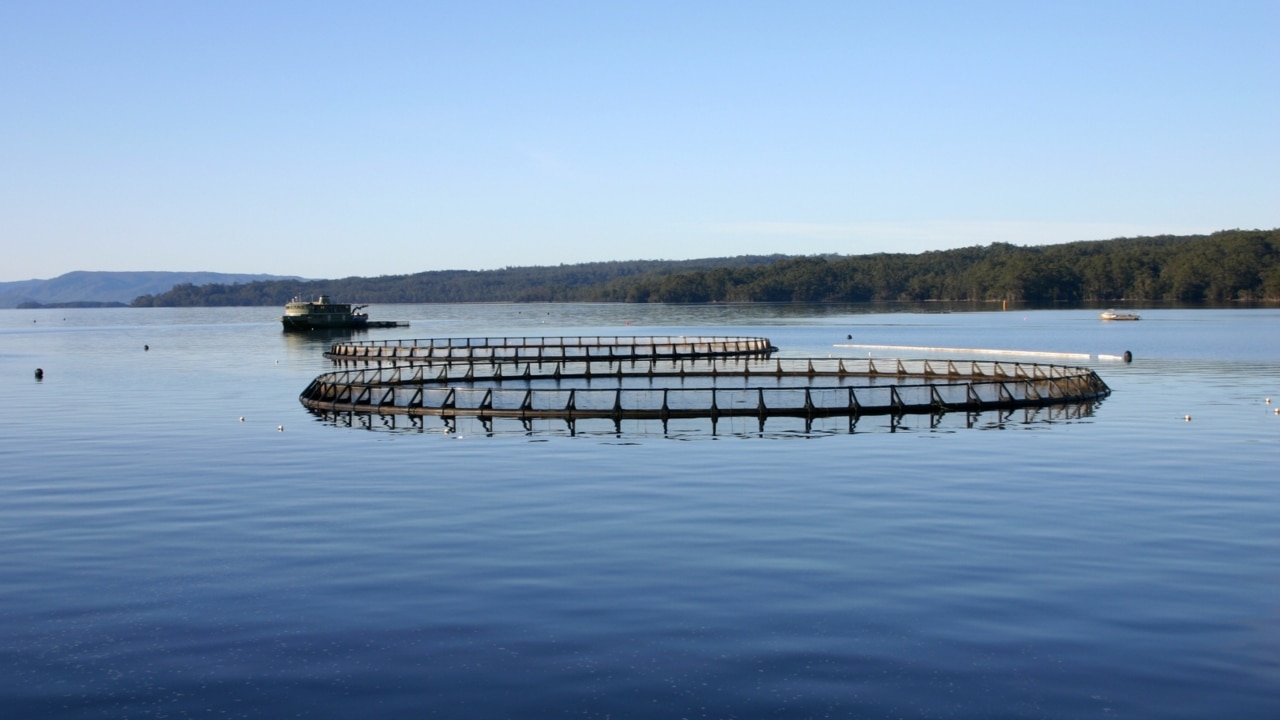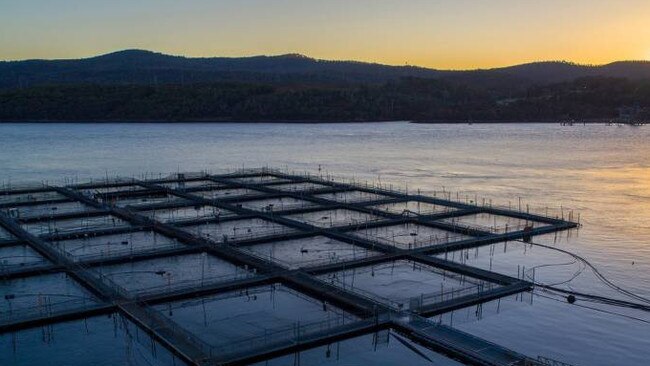Tamar River farm Petuna loses salmon after water temperature spike
A salmon farm on the Tamar River in North Tasmania is dealing with a mass salmon mortality event. WHY IT’S HAPPENED >>

Launceston
Don't miss out on the headlines from Launceston. Followed categories will be added to My News.
PETUNA Aquaculture is dealing with a mass fish mortality event at its Tamar River marine farm which has prompted fresh calls for fish farmers to get out of Tasmania’s warming oceans and waterways.
The company said the farm, at Rowella, had experienced a recent spike in water temperature.
It is unclear how many fish have died but there are reports it could be as many as 60,000 at this stage.
The growing fish would be worth hundreds of thousands of dollars.

Petuna said the very rapid spike in water temperature was followed by a prolonged period of hot days but the water temperature was now falling.
“For now, our immediate concern is to safeguard those fish that have not been affected by removing those that have perished, as well as supporting our farming team who are working to manage the situation,” CEO Ruben Alvarez said.
Disposal of the fish will be managed in accordance with Environmental Protection Authority regulations, the company said.
The farm grows around 2800 tonnes of salmon each year.
The EPA said it was aware of a fish mortality incident at Petuna Aquaculture’s marine farm at Rowella and was working with the company on the extent of the event.
Conservationists say the latest fish deaths show it was time for the salmon industry to get out of Tasmanian coastal waters and rivers.
Greens Senator for Tasmania Peter Whish-Wilson said climate change was the single biggest threat to the Tasmanian Salmon aquaculture industry and it was time to move to closed-loop onshore fish farms powered by renewable energy.

“Tasmania’s East Coast has recently experienced the biggest marine heatwave in recorded history, other shallow waterways like Macquarie Harbour and inshore Huon Valley have also experienced mass fish mortalities from unprecedented warming water,” Senator Whish-Wilson said.
“The Tamar River’s water temperature has obviously always fluctuated but the science tells us climate change is magnifying the frequency and intensity of warming events, leading to lower oxygen levels in our waterways and higher risks of pests and diseases that kill fish and marine life.
“This is exactly why the aquaculture industry is seeking to trial moving fish pens way offshore into deeper commonwealth waters, but even this will fail if our oceans continue to warm.”
Tasmanian Alliance Marine Protection said it had been urging the industry to move to land-based production and with water temperatures increasing now was the time to act.
“TAMP calls on the EPA to be absolutely honest in revealing the details and cuase of the fish deaths and whether it has impacted local marine life, ecology and water quality.
Bob Brown Foundation Fish Farm Campaigner Rebecca Howarth said there had been 69 reported mass fish death since 2019.




